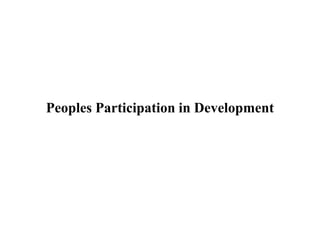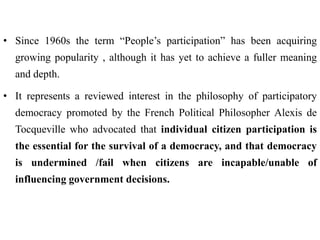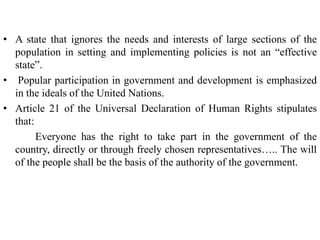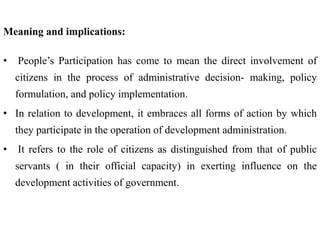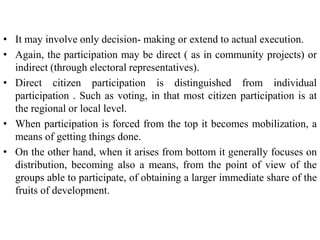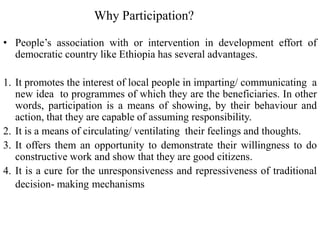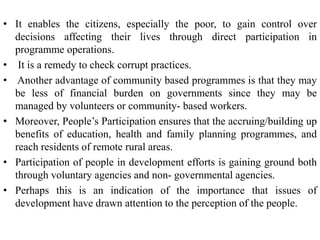The document outlines the significance of people's participation in development since the 1960s, emphasizing its role in participatory democracy and effective governance. It discusses various forms of citizen involvement in decision-making and development processes, noting that such participation can help address local needs, promote accountability, and foster community engagement. Additionally, it highlights the advantages of citizen participation in both developing and developed countries, as well as its impact on governmental effectiveness and social equity.
